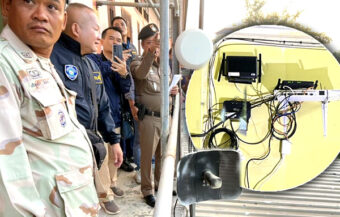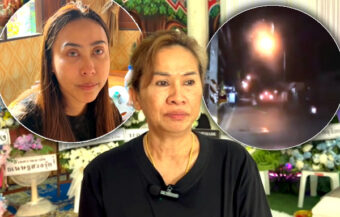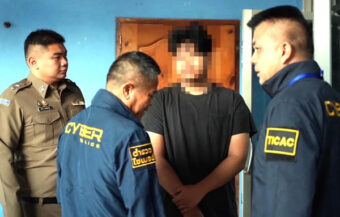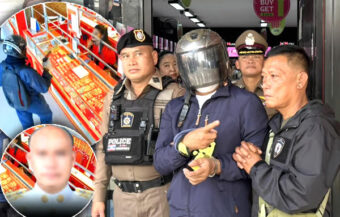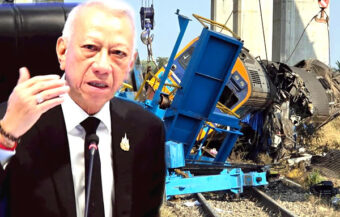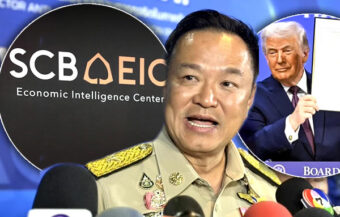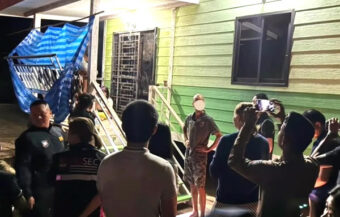PM Paetongtarn Shinawatra has until next Monday to submit her defence in the Constitutional Court over a leaked June 2024 call with Cambodia’s Hun Sen. The audio sparked outrage, accusing her of disloyalty and ethical breaches, deepening Thailand’s political crisis.
In a razor-thin 5-4 ruling, the Constitutional Court gave Prime Minister Paetongtarn Shinawatra until next Monday to submit her defence. The charge? A leaked audio of a private call with Cambodia’s iron-fisted leader, Hun Sen, from June this year. The recording sparked fury—especially among conservatives—over the PM’s tone and words. She offered blatant assurances, sounded unctuous and shockingly called Hun Sen “Uncle.” The clip, her critics claim, lays bare a leader dangerously cosy with a foreign strongman, casting serious doubt on her loyalty and judgment. Still, Paetongtarn insists she acted in Thailand’s best interest and denies any wrongdoing.
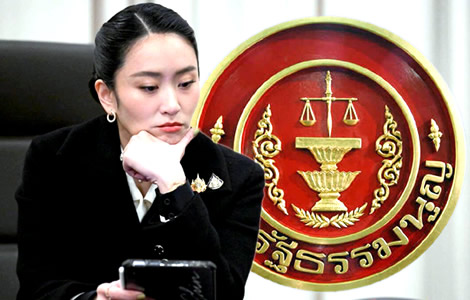
The Constitutional Court of Thailand has granted suspended Prime Minister Paetongtarn Shinawatra a final extension to respond in a critical ethics investigation. By a narrow vote of five to four, the Court allowed her until August 4, 2025, to submit her statement of defence. This decision follows intense scrutiny over a leaked audio conversation with Cambodian Senate President Hun Sen.
The controversy began on June 18, 2025, when an audio clip surfaced in the media. It allegedly captured a private phone conversation between Paetongtarn and Hun Sen. Immediately after the leak, Paetongtarn confirmed the voice was hers. However, she insisted the conversation was a private call intended to promote peace and protect Thailand’s sovereignty.
Nevertheless, many critics were unsatisfied by her explanation. In fact, 36 senators filed a formal petition asking the Constitutional Court to investigate whether she violated her duties. They argued that her behaviour showed a lack of independence and disloyalty to Thailand’s national interests.
Petitioners accuse Paetongtarn of favouring Cambodia and failing in key duties, including negotiations
Specifically, the petition claimed Paetongtarn had displayed undue favour toward Cambodia. Moreover, it accused her of ignoring key responsibilities, including failure to conduct proper international negotiations. The senators also alleged she treated Thailand’s Second Army Region commander as an adversary, further eroding trust in her leadership.
These allegations raised serious questions about her integrity. The petitioners asked the Court to consider removing her from office. They cited constitutional provisions, especially Sections 170 and 160, which deal with ethical violations by ministers. Furthermore, they requested an order to suspend her duties while the case proceeds. This was granted.
Paetongtarn, meanwhile, requested more time to prepare her defence. She stated that evidence gathering was still incomplete. On July 29, 2025, the Constitutional Court convened to decide whether to grant her request. After deliberation, the Court voted 5–4 to grant a final 15-day extension. This moves her deadline to August 4, 2025.
Court grants last extension for Paetongtarn’s defence while four judges oppose any delay in trial process
The Court’s ruling referenced Section 31 of the Organic Act on the Procedures of the Constitutional Court B.E. 2561 (2018). According to this law, the Court can extend deadlines if it serves justice. However, four judges dissented, opposing any extension.
These dissenting judges were Panya Udchachan, Wirun Saengthian, Jiranit Hawanon, and Banjongsak Wongprachan. They argued that the deadline should be firm to avoid delay in the judicial process.
Furthermore, the Court stated that if Paetongtarn fails to submit her defence by August 4, it will be seen as her waiver. Consequently, the trial will continue without her formal response. This decision underlines the seriousness of the investigation and the Court’s commitment to due process.
The leaked audio scandal has dominated Thai politics for over a month. The recording raised fundamental questions about transparency, diplomacy, and ministerial ethics. While Paetongtarn insists the conversation was a diplomatic effort, many remain sceptical. Critics argue that private calls with foreign officials must be transparent and properly authorised.
Petitioners highlight Paetongtarn’s poor military relations and warn personal ties threaten sovereignty
In addition, the petitioners emphasise her lack of cooperation with Thailand’s military officials. The Second Army Region commander, responsible for border security, reportedly received little support from her. This strained relationship deepened concerns about her priorities and allegiance.
Moreover, the petitioners warn that her ties to Cambodia may have compromised Thailand’s sovereignty. This was through her father, whose friendship with Hun Sen is now sundered. They contend that public officials must prioritize national interests above personal relationships. If proven true, such conduct would represent a serious breach of trust.
The constitutional sections cited are critical in this case. Section 170 allows the Court to terminate a minister’s position for ethical violations. Section 160 outlines reasons for removal, including misconduct and failure to perform duties. Together, they provide legal grounds for the petitioners’ request.
The Court’s final extension highlights the case’s complexity. It also shows a divided judiciary with differing views on fairness and procedure. This split decision reveals the political and legal challenges surrounding the investigation.
Political tensions deepen as supporters claim bias while opponents demand full accountability
Politically, the scandal has intensified partisan conflict. Paetongtarn’s supporters claim the probe is politically motivated. They argue it aims to weaken her leadership ahead of upcoming elections. Conversely, opposition parties say the case exposes serious governance problems. They demand full accountability for public officials.
Public opinion remains sharply divided. Some citizens express alarm over ethical lapses in government. Others view the case as a politically driven attack. Regardless, the Constitutional Court’s forthcoming decision will have major political consequences.
As the August 4 deadline nears, attention focuses on Paetongtarn’s defence. Observers expect her statement to address all allegations thoroughly. If she misses the deadline, the Court will proceed based on current evidence.
Should the Court find her guilty, Paetongtarn will be removed and indeed will face further sanctions, including a ban from politics and possible further proceedings. This outcome would mark a significant setback in her political career. Conversely, a successful defence could clear her name or reduce the penalties.
This case will set precedent for diplomatic ethics. Court hearing expected soon after defence submission
Either way, the case sets a precedent for handling diplomatic communications and ethics in Thailand. The Court is expected to schedule hearings soon after the defence submission. Meanwhile, political analysts and citizens closely watch for developments.
In summary, Paetongtarn Shinawatra faces serious charges related to a leaked phone call with Cambodia’s Senate President. The Constitutional Court granted a final extension until August 4 for her to respond. The petition accuses her of violating ethical standards and neglecting her ministerial duties. The Court’s decision reflects divided views on procedure and justice.
Legal moves targeting Shinawatras and Pheu Thai from Election and Anti-Corruption Commissions
Arch conservative icon Sondhi pushes anti-American sentiment against both Thaksin and the People’s Party
Election Commission dismisses strong speculation of legal action over Senate election collusion claims
This case demonstrates the 2017 Constitution’s ability to hold leaders accountable and protect national sovereignty. On the other hand, there is some suggestion that it sets an impossibly high standard for political office holders, or that it is a constitutional minefield that undermines government. The coming weeks will be decisive for Paetongtarn’s political future and Thailand’s political stability. The nation waits anxiously.
Join the Thai News forum, follow Thai Examiner on Facebook here
Receive all our stories as they come out on Telegram here
Follow Thai Examiner here
Further reading:
Legal moves targeting Shinawatras and Pheu Thai from Election and Anti-Corruption Commissions


